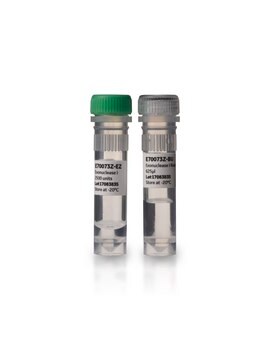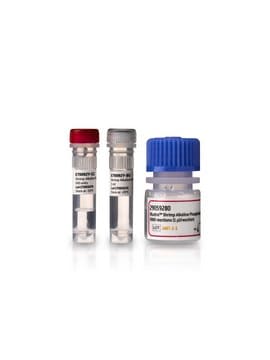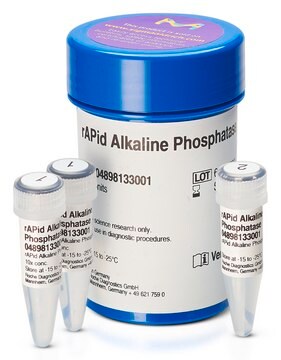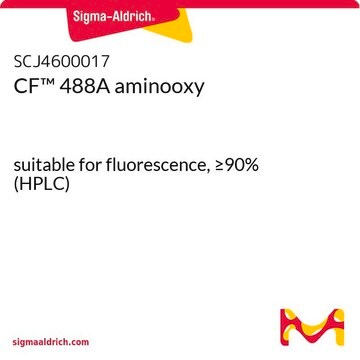GEE70073X
Exonuclease I, 10 U/μL
Cytiva E70073X, pack of 5000 units
Synonym(s):
Exonuclease I Enzyme
Sign Into View Organizational & Contract Pricing
All Photos(1)
About This Item
UNSPSC Code:
12352204
NACRES:
NA.53
Recommended Products
biological source
Escherichia coli
packaging
pack of 5000 units
manufacturer/tradename
Cytiva E70073X
shipped in
dry ice
storage temp.
−20°C
Related Categories
General description
Acts specifically on single-stranded DNA degrading it processively in the 3′- to 5′-direction, producing 5′-mononucleotides.
Exonuclease I (Exo I) from E. coli is an Mg2+ ion dependent exonuclease.
Application
Exonuclease I has been used to quantify the expression of 56 genes in each F2 XY gonad.
Biochem/physiol Actions
Exonuclease I (Exo I) from E. coli can degrade single-stranded DNA (ssDNA) from 3′ to 5′. It participates in various DNA repair systems, like, RecBCD-dependent homologous recombination, methyl-dependent mismatch repair and genomic tandem repeat maintenance.
Features and Benefits
- Elimination of residual single-stranded DNA containing a 3′-terminus.
- Measuring endonucleolytic cleavage of covalently closed circular (ccc) ssDNA.
- Measuring DNA helicase activity.
Storage and Stability
Please be aware this product may be shipped 90 days before the expiration date. For more information on the batch specific expiration date, please contact technical service.
Analysis Note
To view the Certificate of Analysis for this product, please visit www.cytiva.com.
Storage Class Code
12 - Non Combustible Liquids
Choose from one of the most recent versions:
Certificates of Analysis (COA)
Lot/Batch Number
Sorry, we don't have COAs for this product available online at this time.
If you need assistance, please contact Customer Support.
Already Own This Product?
Find documentation for the products that you have recently purchased in the Document Library.
Structural and Biochemical Studies of a Moderately Thermophilic Exonuclease I from Methylocaldum szegediense
Fei L, et al.
Testing, 10(2), e0117470-e0117470 (2015)
Elucidation of the transcription network governing mammalian sex determination by exploiting strain-specific susceptibility to sex reversal
Munger S C, et al.
Genes & Development, 23(21), 2521-2536 (2009)
Our team of scientists has experience in all areas of research including Life Science, Material Science, Chemical Synthesis, Chromatography, Analytical and many others.
Contact Technical Service







